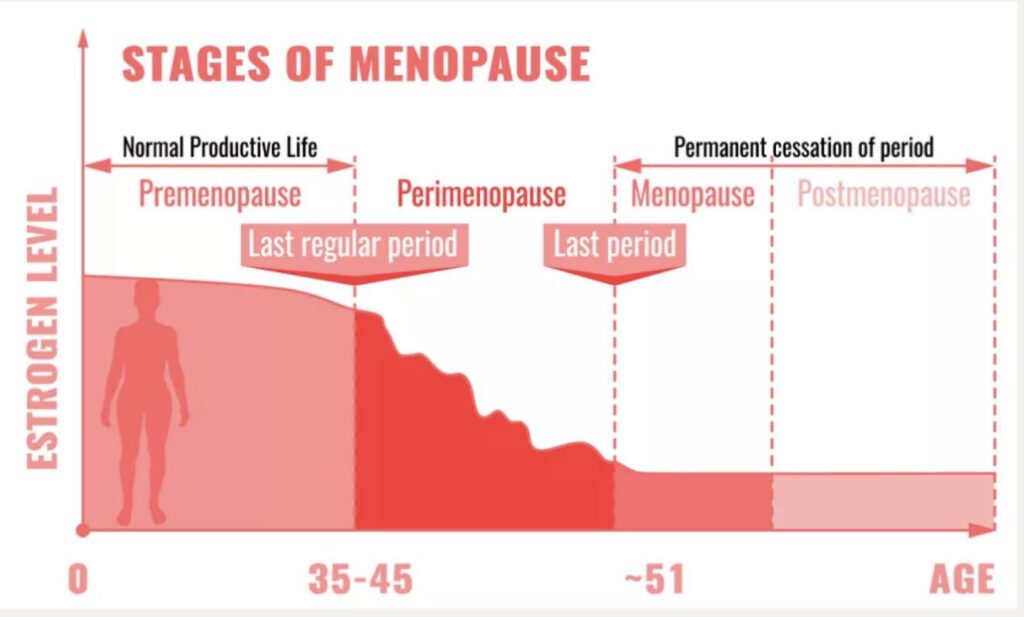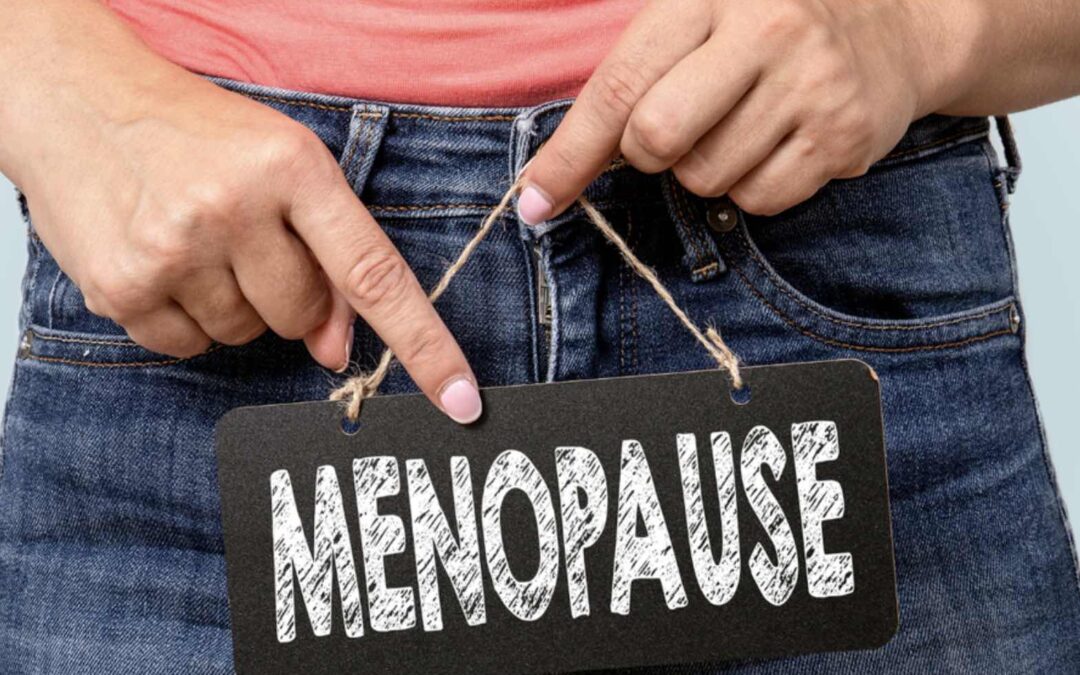A lot of anxiety comes with aging, even when we know that it’s a natural way of life. For women, they brace themselves for menopause.
Every woman goes through menopause, but each will definitely experience it differently: nasty hot flashes, mood swings, irritability, insomnia, night sweats, fatigue, memory loss, forgetfulness, weight gain, thinning hair, dry skin, anxiety, and sometimes even anger attacks.
I learned that men also have their own experience with menopause, called andropause. They exhibit the same symptoms as women: mood swings, irritability, insomnia, and memory loss. What’s common among men are the loss of muscle mass and reduced ability to exercise, fat redistribution, such as developing a large belly or man boobs (gynecomastia), general lack of enthusiasm or energy, loss of sex drive, and erectile dysfunction.
Did you know that menopause for women is gradual?

Menopause goes through three stages: perimenopause, menopause, and post-menopause. Menopause is when a woman no longer has menstrual periods. At this stage, the ovaries stop releasing eggs and stop producing estrogen. This occurs between the age of 45 and 55 years old. Technically, it is diagnosed when a woman has gone without a period for 12 consecutive months.
One of the first signs that your body is preparing for menopause is a shift in sleep cycles. Many women complain of waking up in the middle of the night, the need to urinate frequently, or heavy sweating during sleep. Perimenopause can begin 8 to 10 years before menopause, usually starting at 40 years old. At this stage, you can begin experiencing menopause symptoms, have shorter and more irregular menstrual cycles, and become less fertile, but you can still get pregnant.
The post-menopause period is years after menopause. During this stage, menopausal symptoms, such as hot flashes, can start easing. However, due to estrogen depletion, post-menopausal women are at increased risk for several health conditions, such as osteoporosis and heart disease.
Here are 8 tips to prevent early menopause or perimenopause, to better ease into our age:
1. Walk every day, especially if you are experiencing menopause already. For every 3,800 steps, the risk of heart disease, cancer, and premature death decreases by 25%, and a little under 10,000 steps a day (9,800) can drop the risk of dementia by 50%.
2. Incorporate a yoga, breathwork or meditation practice daily.
3. Follow a moderate eating program by eating two meals a day. No solids before 10:00 am; do not eat after 7:00 pm, at least three hours before sleep, to avoid heartburn or acid reflux. Take your heavy meal from 11:00 am to 2 pm.
4. Say no to white sugar since it robs the body of Vitamin B, affects the nerves, and may cause heart trouble over time.
5. Avoid toxins such as alcohol since it puts stress on the body and is highly addictive as well as nicotine as it robs the body of Vitamin C and Iron.
6. Reduce caffeine as it irritates the stomach, impedes digestion, and disturbs sleep patterns.
7. Vitamin E, chlorophyll, almond oil (2 tablespoons), and steamed vegetables will help improve low estrogen levels.
8. Nurture your relationships, and stay connected with your family, friends, and community.
I find that one way to overcome a lot of fear over things beyond our control is to live in the present. Be mindful, and always come back to the present, so you find ways to stay steady for the challenges of the days after.
In loving service,
Rosan


